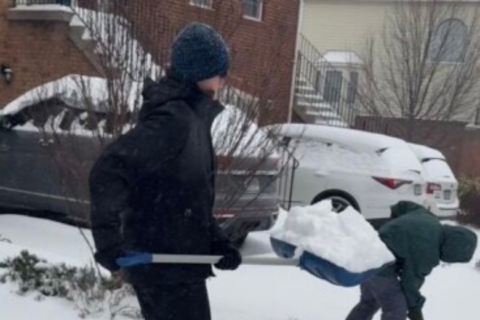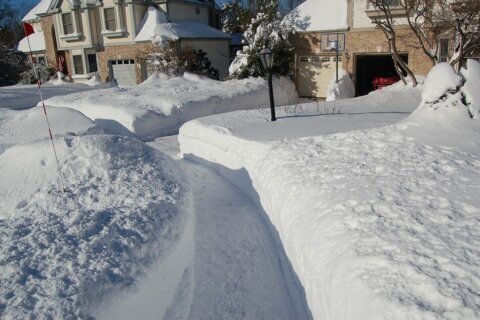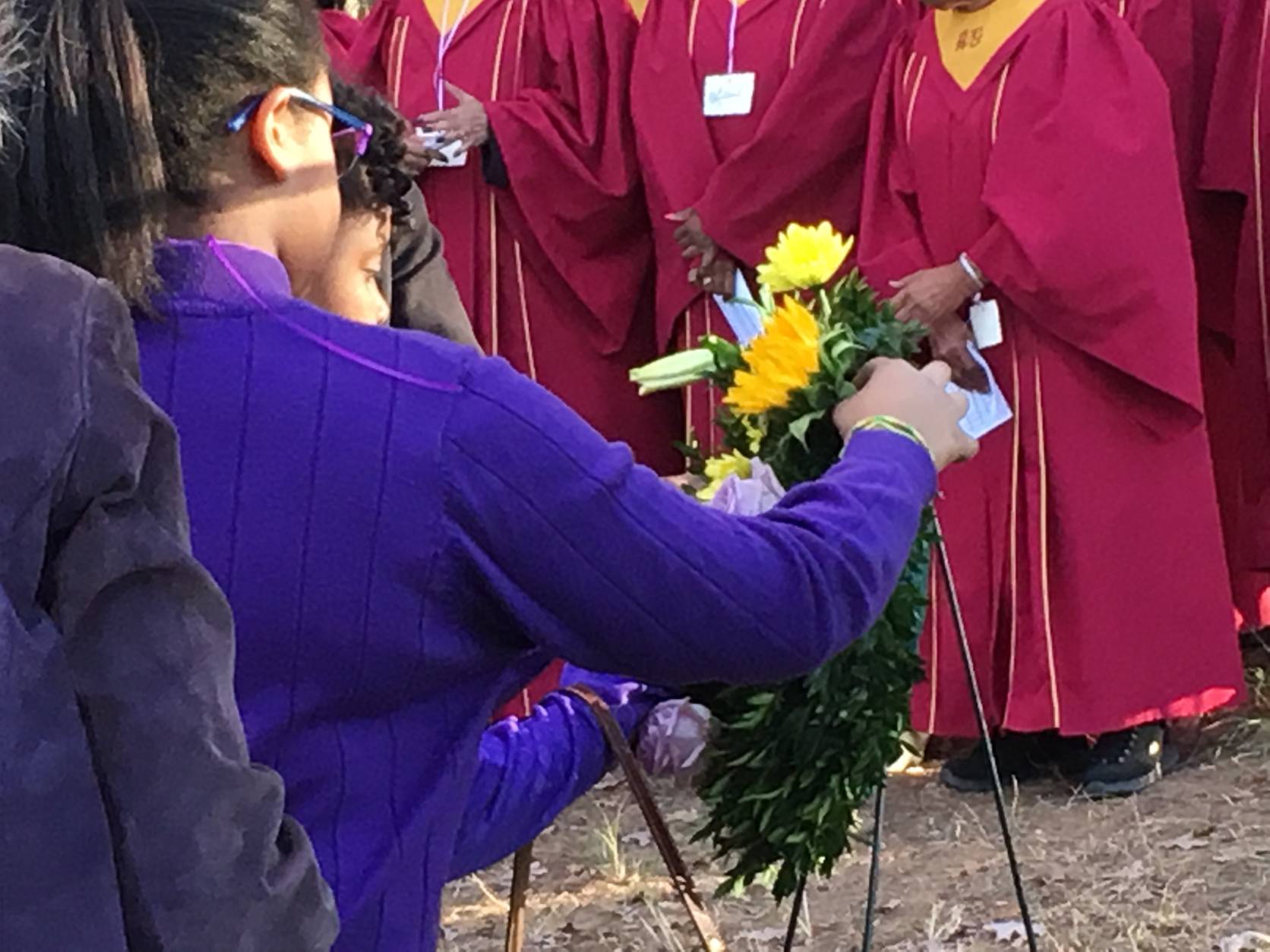
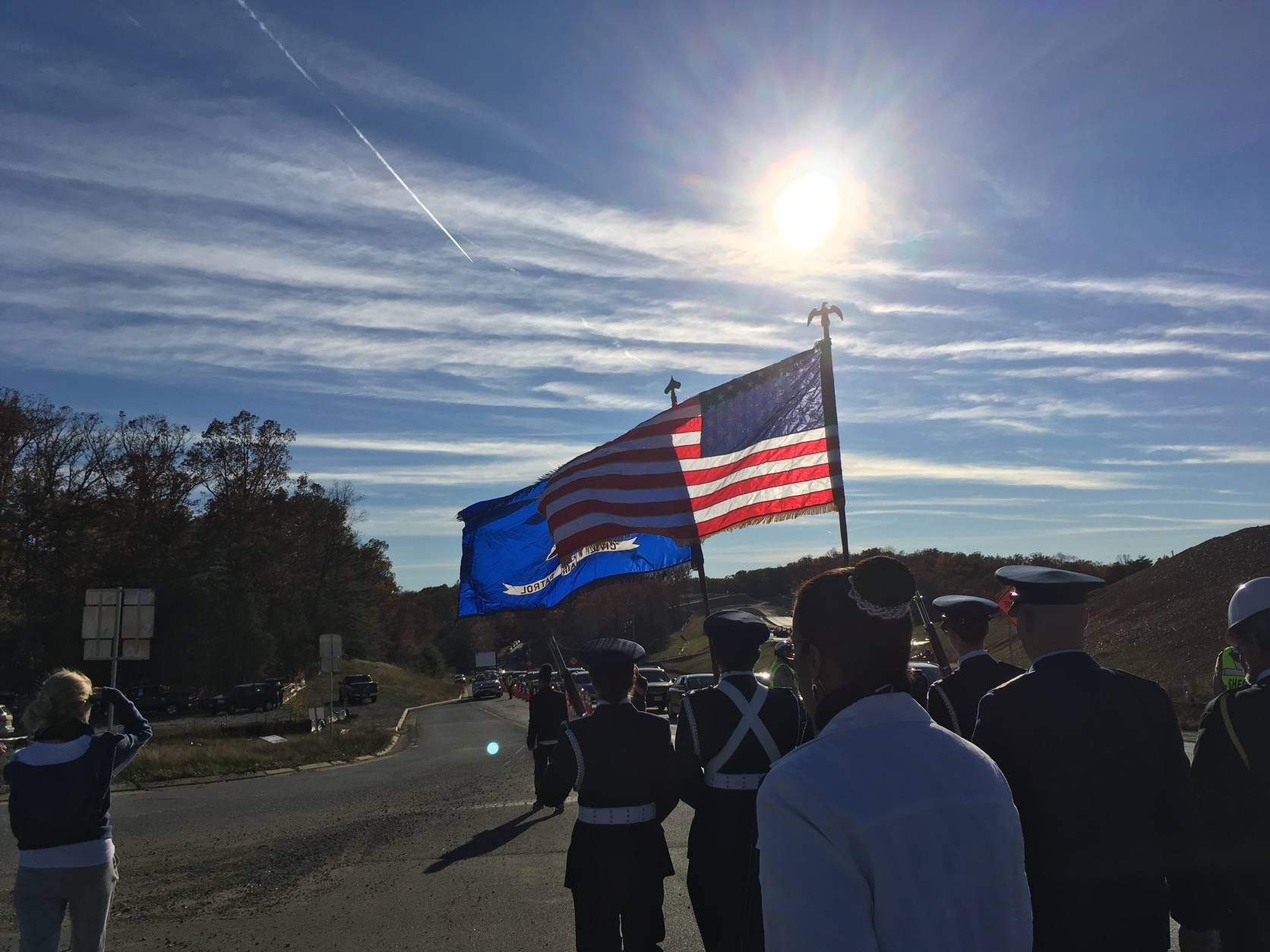
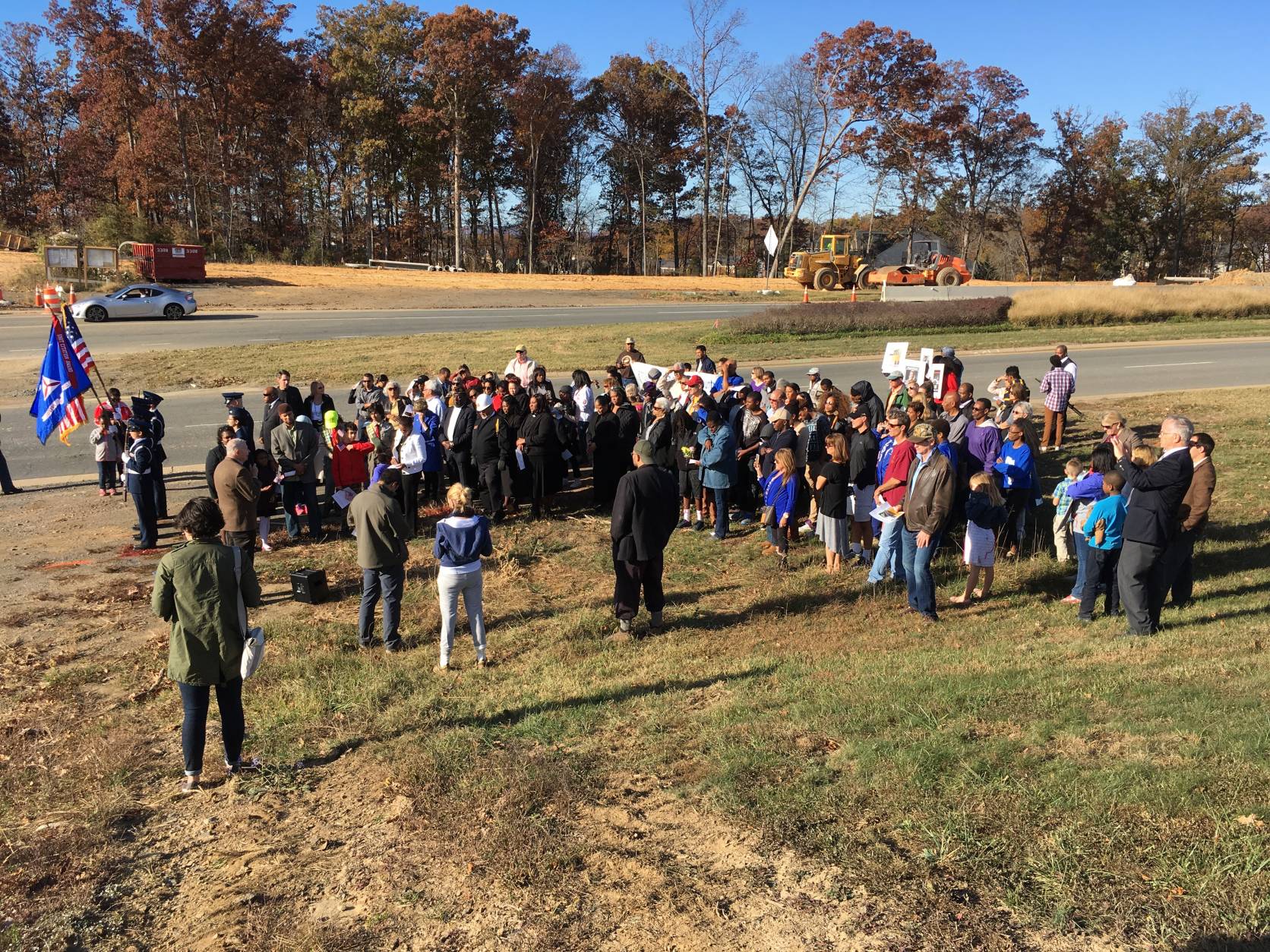
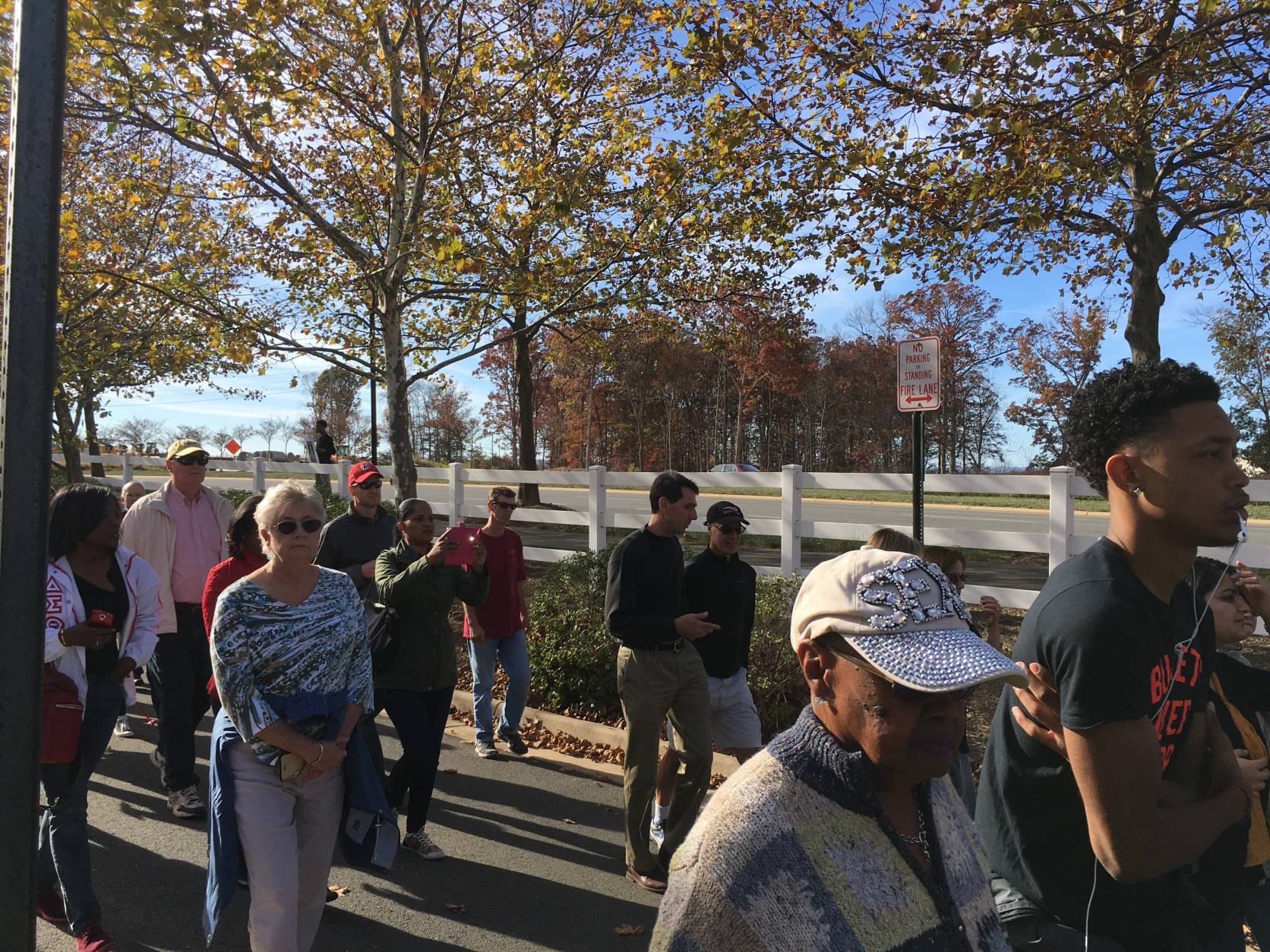
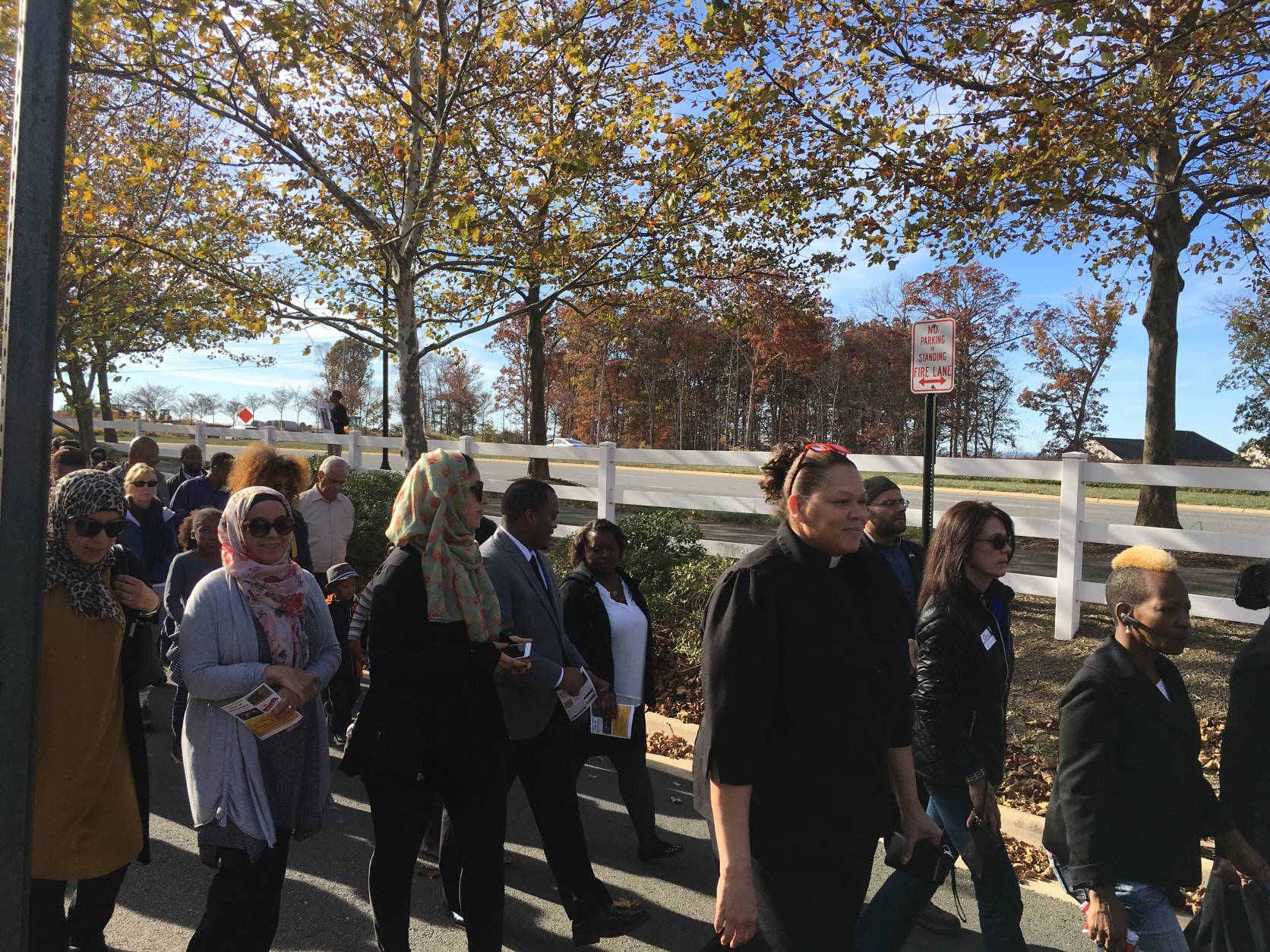
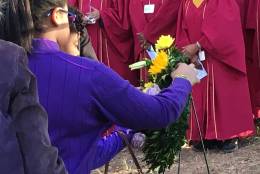
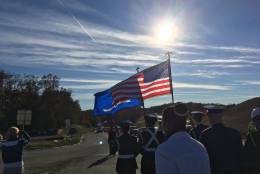
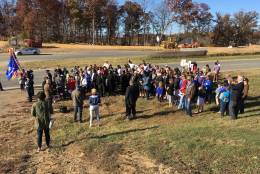
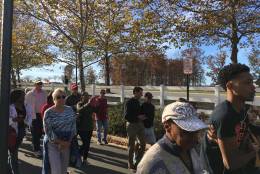
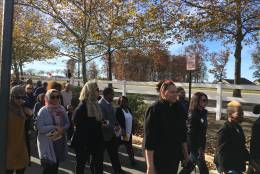
LEESBURG, Va. — Walking the dusty way between former plantations in Loudoun County, Virginia, dozens gathered Sunday afternoon to honor the memory of enslaved people who were buried at a cemetery just off Route 7 and Belmont Ridge Road.
“History belongs to those that are careful enough to preserve it,” said Michelle Thomas, pastor at Holy and Whole Life Changing Ministries in Leesburg, to the group.
“If we do not preserve this history, we will lose it,” she added.
Thomas is part of a team that’s working to preserve the local slave cemetery; together with historian Eugene Scheel, they dropped kernels of history during the brief walking tour between the former Coton and Belmont plantations.
“Be very careful — we will be walking into the woods,” Scheel cautioned the group as they approached the sloping up to the unmarked cemetery, which sits next to an area currently under development.
Once at the cemetery, there were songs, prayers, a poem and a reading of names of the enslaved who were once on the nearby plantations. Names of more than a hundred slaves were uncovered after at least several days spent looking through wills, deeds, judgment and inventory lists, Thomas said.
The intended annual ceremony drew a diverse group in attendance, including those from Christian and Muslim communities.
“A lot of people may not know that 30 percent of enslaved Africans were Muslim. They helped build this country before it was a country,” said Rizwan Jaka of the All Dulles Area Muslim Society.
Also in attendance was Alford Carter III who canceled a trip to Virginia Beach for the wreath laying ceremony. He recalled trips to the cemetery with his mother during his childhood to visit the grave of a man only known as “Ned.”
“She’d bring flowers and put the flowers on the grave, and that’s it,” Carter said. “For my mother to take me there, there had to be something there.”


